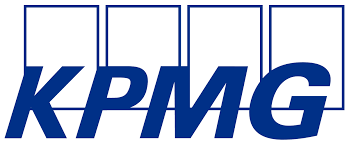KPMG Fined £1.25 Million for Audit Breaches Amid Rising UK Cybersecurity Concerns

KPMG’s £1.25 million fine in June 2025 has sent shockwaves through the UK accounting sector. The Financial Reporting Council uncovered serious failings in KPMG’s audit of Carr’s Group. These failings include a lack of independence. They also involve insufficient challenge of management’s claims. This high-profile penalty shines a spotlight on a growing concern: how cybersecurity risks are reshaping audit quality and compliance.
Audit Failures Under Scrutiny
The Financial Reporting Council’s investigation revealed clear governance flaws at KPMG. The audit team compromised the objectivity required to give a fair view of Carr’s Group’s finances. This breach of professional standards damages trust in financial reporting. It serves as a stern warning for firms navigating tighter regulations.
The fine primarily reflects traditional audit failings, such as independence and scepticism. It also suggests challenges arising from the profession’s digital transformation.
Cybersecurity’s Rising Role in Auditing
Auditing is no longer a manual task. Digital tools such as cloud-based software, automated data analytics, and electronic workflows dominate the process. These innovations boost efficiency but open the door to new risks.
Cyber threats like ransomware, phishing, and data breaches jeopardise the accuracy and integrity of financial data. Auditors rely on clean, untampered records to form their opinions. Disruptions caused by cyber incidents can delay audits and cast doubt on reported figures.
Regulators now expect cybersecurity to be a key part of audit risk assessments. The Financial Reporting Council is embedding these concerns into governance frameworks to safeguard audit quality.
Three Cybersecurity Tools Accounting Firms Must Use
To protect client data and ensure audit integrity, firms are investing in essential cybersecurity technologies:
- MFA (Multi-factor authentication):
Multi-factor authentication strengthens security by requiring multiple proofs of identity. It reduces the risk of stolen credentials being used to access sensitive systems.
- SIEM (Security information and event management) :
Security information and event management tools monitor IT environments continuously. They spot unusual activity in real time, allowing swift response to threats.
- Data Encryption:
Encrypting data both at rest and in transit ensures that intercepted information remains unreadable without the key. This is critical for protecting financial data, especially in cloud environments.
Regulatory Pressure and Industry Response
The UK government is tightening cyber resilience requirements through upcoming legislation like the Cyber Security and Resilience Bill. This aims to protect critical infrastructure, including financial services, by imposing stricter cyber risk management.
Alongside these laws, the Financial Reporting Council is updating audit standards. The new standards require auditors to include cyber risks in their evaluations. Firms now need strong cybersecurity measures alongside traditional audit controls.
The High Cost of Cybersecurity Failures
Ignoring cyber risks can be costly. KPMG’s £1.25 million fine sends a clear message: regulators will hold firms accountable for governance failures linked to cyber vulnerabilities. Beyond fines, reputational damage and lost client trust pose even greater threats.
Cybersecurity cannot be treated as a separate IT issue. It is now central to audit quality and financial reporting reliability.
Conclusion
KPMG’s penalty for audit breaches during the Carr’s Group review highlights a vital truth: cybersecurity is integral to modern auditing. As digital tools become indispensable, firms must adopt strong defences like MFA, SIEM, and encryption.
With regulatory scrutiny increasing, complacency is not an option. UK auditors must combine independence and scepticism with vigilance against cyber threats. The future of audit quality depends on it.





